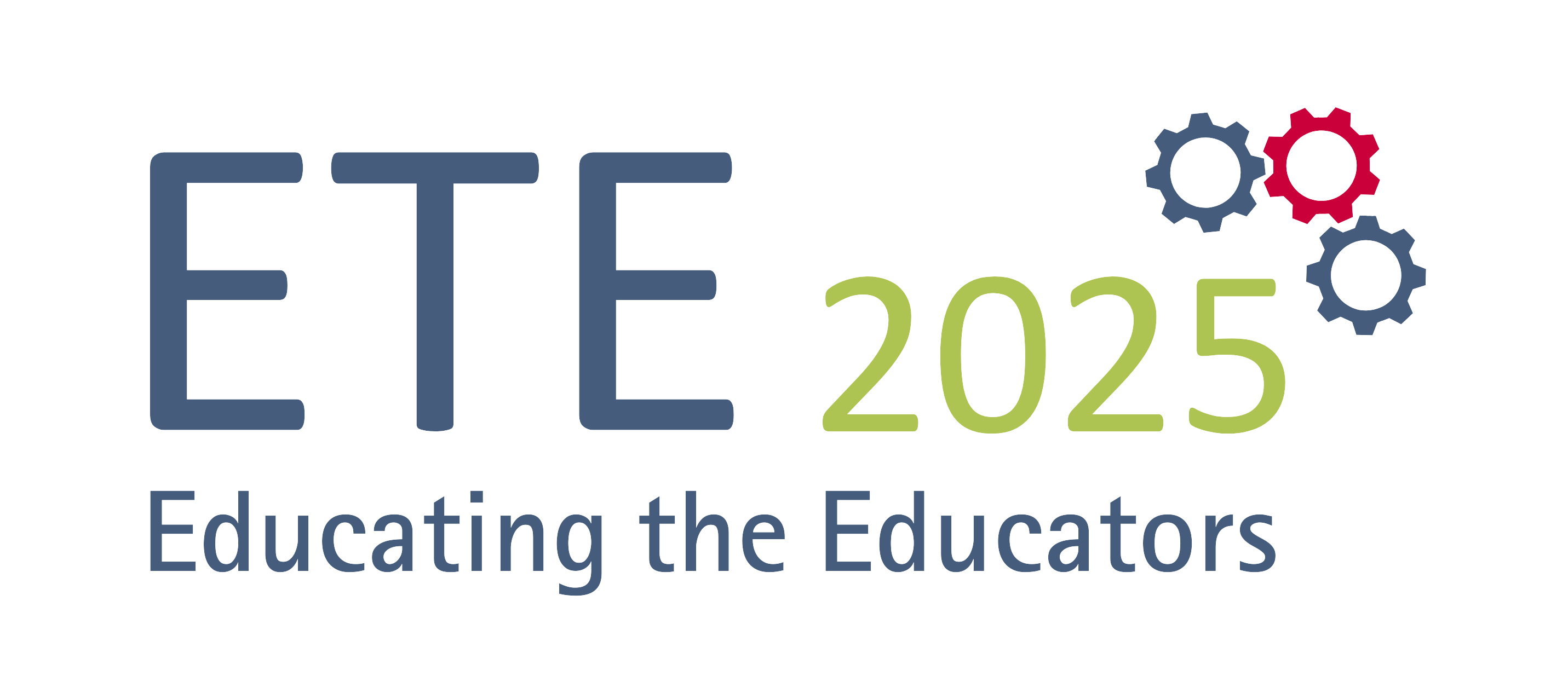About ETE Conference
Educating the Educators is an international conference series on professional development in mathematics and science education that brings together teacher educators, policy makers, teachers and various other stakeholders related to STEM education.
Track 1. Diversity in STEM Education
Diversity in STEM classrooms is a crucial cornerstone in the ongoing conversation about advancing STEM education. This theme delves into the multifaceted landscape of diversity within STEM disciplines, with a particular emphasis on gender inclusivity, gender-sensitive pedagogies, and intercultural approaches. In contemporary society, fostering diversity in STEM classrooms has transcended beyond a mere social imperative; it has become an essential catalyst for innovation, progress, and societal transformation.
Recognising the vast array of perspectives, experiences, and identities within STEM fields not only enriches learning environments but also drives innovation by leveraging diverse insights and problem-solving approaches. This thematic area invites scholars, educators, researchers, and practitioners to engage in meaningful dialogue and exploration of strategies to create inclusive STEM classrooms. Participants will have the opportunity to share best practices, innovative strategies, and evidence-based interventions aimed at promoting diversity, equity, and inclusion in STEM classrooms.
Track Leader: Michiel Doorman, Utrecht University, Netherlands
Track 2. STEM Education in the Digital Era
Digitalization is one of the most significant topics of the 21st century. The rapid pace of technological development often leaves individuals struggling to understand these new tools. This evolution presents both challenges and opportunities for the educational sector. On one hand, the incorporation of new technologies—along with their potential and risks—into curricula is essential, while on the other hand, these technologies provide unprecedented teaching and learning opportunities.
For example, the “digital divide”—a term describing the gap between those with and without access to digital technologies—poses a significant challenge in integrating these technologies into education. 3D technologies, such as 3D printers and augmented reality, render abstract teaching content more tangible, while AI-based tools assist teachers in lesson preparation and practice, and serve as personalized learning tools for differentiated education. Overall, digitalization demands a new understanding of both what and how we teach and learn. In this area, you will find workshops featuring hands-on activities and best practice examples, alongside in-depth analyses and effectiveness studies that illustrate the modern developments in STEM education in the digital age.
Track Leader: Gultekin Cakmakci, Hacettepe University, Türkiye
Track 3. Interdisciplinarity in STEM Education
The global expansion of STEM Education has been accompanied by a broad discussion about its meaning. Although there is no consensus on its definition, STEM Education generally entails the interdisciplinary integration of concepts and skills from at least two of the four disciplines represented by the acronym. Interdisciplinarity in STEM Education has particular relevance in addressing innovative solutions to authentic problems, where each STEM discipline plays a particular role in responding to these problems.
Furthermore, involving students in exploring these authentic problems fosters the development of their STEM skills, including critical thinking, creative problem-solving, communication, and cooperation. Despite the potential benefits of interdisciplinary STEM Education for students, experiences involving STEM integration in the classroom remain relatively scarce. This thematic area invites scholars, educators, researchers, and practitioners to share best practices, interdisciplinary curriculum approaches, and evidence-based interventions aimed at promoting interdisciplinarity in STEM education.
Track Leader: Martin Bilek, Charles University Prague, Czech Republic
Track 4. Sustainability and STEM Education
Your content goes here. Edit or remove this text inline or in the module Content settings. You can also style every aspect of this content in the module Design settings and even apply custom CSS to this text in the module Advanced settings.
Preparing the next generation for the future is of great importance. Issues and topics related to sustainability still often seem to be structurally interrupted in primary and secondary education or take an unclear or even contradictory approach in science, geography, citizenship and economics lessons. How do we teach about sustainability so that our students don’t just see problems but develop a hopeful perspective? A perspective that shows that choices and actions matter and that the future is not a fait accompli.The need for action also concerns our STEM education community to make use of the transformational potential of teaching and learning. We need to share good practices, research results and innovative classroom materials that allow for implementing approaches that support the implementation and scaling up of education for sustainability. These actions are broad in scope and attend not only to the practices of teachers, teacher educators and researchers but also involve other important stakeholders, including school principals, policymakers and the students themselves. Moreover, these actions require and appreciate the capillarity of educational institutions and their communities and require collaboration and commitments that ensure educational opportunities and joint responsibilities.
Track Leader: Marta Romero Ariza, University of Jaen, Spain
EtE 2025 will focus on implementing and scaling up innovative teaching approaches in STEM education. The aim is to discuss different approaches with a rich variety of participants on four broad tracks.
Target Group
The conference on the one hand will give researchers the chance to present their work, but also welcomes teachers, teacher educators and policy makers to raise their voice for a better future, focusing on 21 century challenges in STEM education.
This conference follows on the great success of the first, second and third conference that we hosted on this topic in 2014, 2016, 2019 and 2023 (link to ‘conference series’).
Each of our past events saw nearly 200 researchers, policy makers, and practitioners come together to advance professional development in mathematics and science education. This ongoing collaboration has highlighted the critical need for continued progress in this field.
Ready to submit?
The ETE 2025 conference board warmly invites you to contribute to this significant event. We welcome proposals for research, practice, or policy-oriented paper presentations, posters, and workshops, as well as stands for our material market. Submit your proposals [here](link to ‘submission’) and join us in shaping the future of STEM education.
